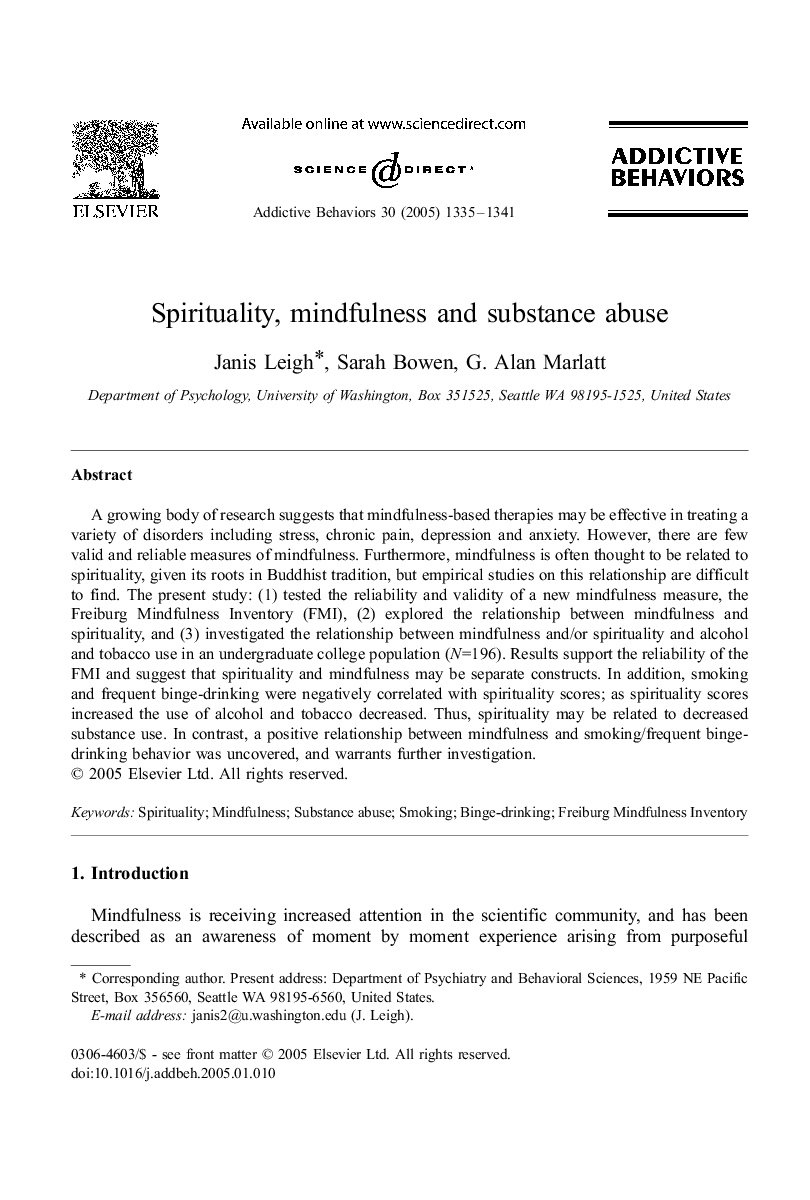| Article ID | Journal | Published Year | Pages | File Type |
|---|---|---|---|---|
| 10443964 | Addictive Behaviors | 2005 | 7 Pages |
Abstract
A growing body of research suggests that mindfulness-based therapies may be effective in treating a variety of disorders including stress, chronic pain, depression and anxiety. However, there are few valid and reliable measures of mindfulness. Furthermore, mindfulness is often thought to be related to spirituality, given its roots in Buddhist tradition, but empirical studies on this relationship are difficult to find. The present study: (1) tested the reliability and validity of a new mindfulness measure, the Freiburg Mindfulness Inventory (FMI), (2) explored the relationship between mindfulness and spirituality, and (3) investigated the relationship between mindfulness and/or spirituality and alcohol and tobacco use in an undergraduate college population (N=196). Results support the reliability of the FMI and suggest that spirituality and mindfulness may be separate constructs. In addition, smoking and frequent binge-drinking were negatively correlated with spirituality scores; as spirituality scores increased the use of alcohol and tobacco decreased. Thus, spirituality may be related to decreased substance use. In contrast, a positive relationship between mindfulness and smoking/frequent binge-drinking behavior was uncovered, and warrants further investigation.
Related Topics
Life Sciences
Neuroscience
Behavioral Neuroscience
Authors
Janis Leigh, Sarah Bowen, G. Alan Marlatt,
